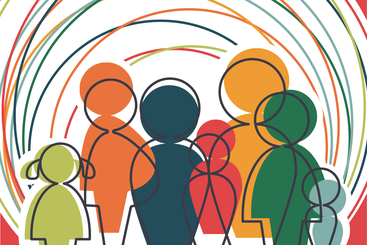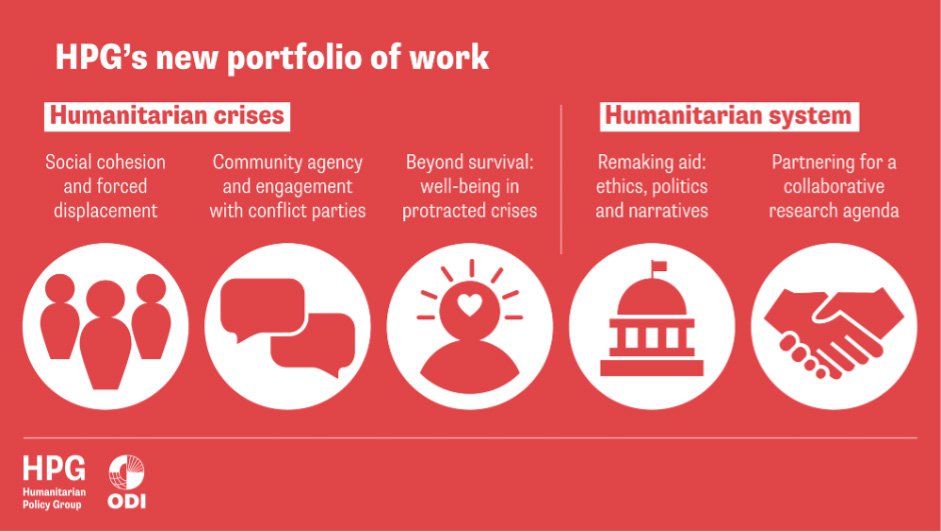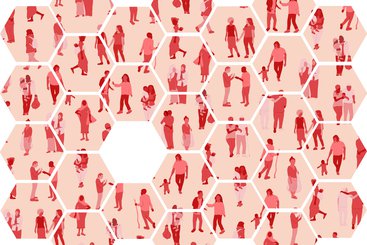
People, power and agency
Following the successful completion this year of our Integrated Programme of work on inclusivity and invisibility in humanitarian action, HPG has now kickstarted a new research agenda focused on people, power and agency.
HPG’s new Integrated Programme for 2022–2024 explores how the humanitarian sector can better understand the social and political forces that influence humanitarian assistance. The starting point for this programme is that, while assistance may provide a critical lifeline in crises, it is often the agency, power and relationships of affected people that are more significant factors in their survival and recovery – or, conversely, in their vulnerability and exclusion. Yet too often assistance is disconnected from how people actually live their lives, and from the relationships that support and sustain them.
Our 2022–2024 Integrated Programme comprises five projects, which explore how humanitarians can better engage with the social and political dynamics that influence humanitarian assistance.
HPG’s first project – Social cohesion and forced displacement – examines barriers and drivers to cohesion across communities, the extent to which humanitarian aid can help or hinder. HPG’s review of the evidence on social cohesion found that the kind of aid provided, how it is distributed and to whom all have a bearing on social cohesion between displaced people and host communities. Yet despite this, there is little understanding in humanitarian circles of what social cohesion is and how to strengthen it. Over the next year, HPG will examine social cohesion between Afghan refugees and their Pakistani hosts, as well as the factors influencing social cohesion in displacement settings in Tanzania.
In our second project, HPG is exploring how aid actors can create a better enabling environment for crisis-affected people to pursue well-being on their own terms. In Beyond survival: well-being in protracted crises, we will undertake work on the Myanmar–Thai border, in northeast Syria and in the Democratic Republic of Congo to examine how far humanitarian action supports or hinders people’s well-being, looking at how humanitarian aid fits within the wider network of resources people draw on to live meaningful lives.
HPG’s new protection project – Community agency, protection and peacebuilding – focuses on local-level civilian self-protection and peacebuilding strategies. With research in South Sudan and other conflict settings, we aim to understand how peacebuilding and protection actors could strengthen their collective efforts to reinforce community engagement strategies.
How aid is shaped, remade and reformed is the focus of our next project, Remaking aid: ethics, politics and narratives. Three case studies will focus on how public narratives have shaped the rise of Germany as a leading humanitarian donor; how evidence-based narratives have interplayed with public and institutional narratives in the significant rise of cash transfers; and how feminist narratives in the foreign policies of Canada, Sweden and Germany are influencing humanitarian policy and practice.
In our final project, HPG and the Neem Foundation in Nigeria will work together to amplify Neem’s research and policy priorities through a co-designed research project analysing how aid prioritisation happens in Nigeria and the factors influencing it. Along the way, and as part of our Partnering for a localised humanitarian research agenda project, HPG will take forward and share lessons for more equitable partnerships and research practices across our work. The research will be underpinned by core questions that relate to how HPG can instigate a more equitable humanitarian policy research agenda in partnership with local researchers, and how such an agenda might change the questions we ask, the outcomes we achieve and the policy issues we prioritise.

